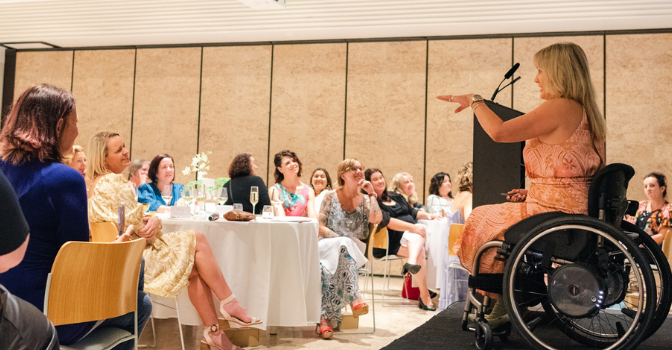The first ever Source Mama Gathering held in Brisbane last week was a wonderful evening with with fabulous guest speaker Karni Liddell, a former world record holder, Paralympic swimmer, speaker, TV presenter and ‘Mama’.
Held at the Calile Hotel in Brisbane, the event was proudly sponsored by Leap in! Many of our crew, members and community of providers attended and a huge congratulations to our competition winners too.
The event was an opportunity for mothers to take time out, connect and relax as well as celebrate the journey of raising children with a disability.
Karni explained how being encouraged by her parents and other people saying “yes” helped create a positive mindset and opened up opportunities for success.
Now a mama herself, Karni spoke about how parents everywhere fight for and on behalf of their kids with superpowers every day – at school, at sports and in the community. Her mission is to break down barriers and forge change so families don’t have to fight. If you’d like to hear Karni speak, check out her Tedx talk, A happy baby.
We loved seeing so many mama’s relaxing and connecting. If you were there, check out the photo gallery.
To find out about future events, keep an eye on Leap in! updates or join the Source Mama Facebook group. It’s a supportive, closed group where mothers raising children with a disability can ask questions and get advice without judgement.
Leap in! can help.
Get specialist advice from our dedicated team, experienced in helping people of all ages get the most out of their NDIS Plans.
To find out more, call us on 1300 05 78 78, visit our website (online chat available) or email crew@leapin.com.au
Further reading
Resources for parents of children with disabilities.
Early Childhood Early Intervention.
What are informal supports and why are they important?


